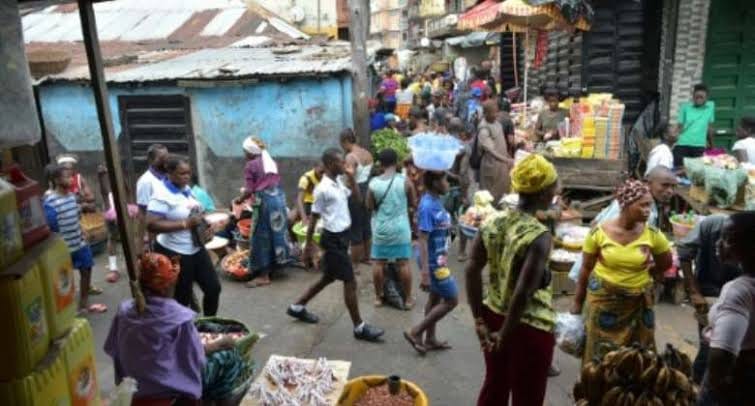Food prices, freedoms concern S.Leone’s young voters

Alie used to work eight hours a day driving a commercial tuk-tuk, known locally as a keke, in Sierra Leone’s capital Freetown, but as fuel prices soar, he now finds himself working 18-hour days just to make ends meet.
“Everything is uphill — there are no jobs, and (problems with) the electricity and water supply,” the 27-year-old, who asked only to be identified by his first name, told AFP.

When Sierra Leoneans go to the polls in Saturday’s presidential election, he plans to vote for the opposition All People’s Congress (APC) party.
Last time, he voted for incumbent President Julius Maada Bio of the Sierra Leone People’s Party (SLPP) who is running again.
“We need a change — we need a new government,” Alie said. “If you come into our community you will see (people) sitting around, doing nothing, only taking drugs.”
Rising prices are uppermost in the minds of many young people, who make up a significant portion of the population.
About 52.4 percent of registered voters — some 1.78 million people — are aged between 18 and 35, according to an electoral commission spokesman.
Sierra Leone, still recovering from the 2014-2016 West Africa Ebola epidemic, was again hit hard by the Covid pandemic and Russia’s war in Ukraine.
Heavily dependent on imports, prices of food staples such as rice have doubled or tripled in recent years.
Year-on-year inflation hit 43 percent in April, the last month on record.
– Education, agriculture –
A struggling economy, however, does not necessarily spell disaster for Bio at the ballot box.
He is forecast to win 56 percent of the vote, compared to 43 percent for his main challenger Samura Kamara, according to a June 14 poll by the Institute for Governance Reform (IGR).
Most people in Sierra Leone vote based on longstanding regional allegiances.
“Districts in the north and western regions hosting Themne and Limba speakers are traditionally loyal to APC, while the dominant Mende-speaking districts in the south and east vote for the ruling SLPP,” IGR said in a May report.
Jobs and benefits are commonly perceived to flow to regions whose politicians are in power.
“We want to have electricity — of course (Bio) is working on it,” said Crispin Harding, an 18-year-old student attending an SLPP rally in Freetown.
“We want better water — of course he’s doing it.”
Carpenter Abu Sesay, 33, who lives in Freetown’s Goderich neighborhood, told AFP he was “voting SLPP for the free education program, even though our country is faced with economic challenges”.
Bio has invested 22 percent of the budget into education and abolished primary and secondary school fees.
In an interview with AFP last month, the president said the cost-of-living crisis was caused by “exogenous factors” rather than his own doing.
He said he had waived import duties and “used all the instruments available” to mitigate the damage.
Both Bio and Kamara, of the APC, told AFP they would prioritize boosting agriculture and food sustainability.
In an Afrobarometer survey conducted between June and July 2022, respondents highlighted the management of the economy and food shortages as the two most important problems that the government should address.
But other concerns included infrastructure and roads, water supplies and education.
*- Human rights – *
Prince, a university student living in Freetown’s Cockle Bay slum who asked to be identified only by his first name, said he, too, was worried about the cost of living and the struggle to afford three meals a day.
But he also said that “the government has violated our fundamental human rights — the most specific one is the right to freedom of expression”.
Sierra Leone’s score on the annual index of US-based advocacy group Freedom House has slipped during Bio’s five-year tenure.
Following deadly riots last August over the rising cost of living, Amnesty International said it had gathered testimonies alleging excessive use of force and denounced internet restrictions.
A shrinking civic space was also a concern highlighted by a 28-year-old NGO worker, who spoke to AFP on condition of anonymity.
She said her family had always voted SLPP, seeing it as the more responsible party, but her views were beginning to shift.
For Sesay, the carpenter, neither party is perfect but, he said, the “SLPP is the lesser evil in Sierra Leone politics since independence”.
©️ Agence France-Presse














